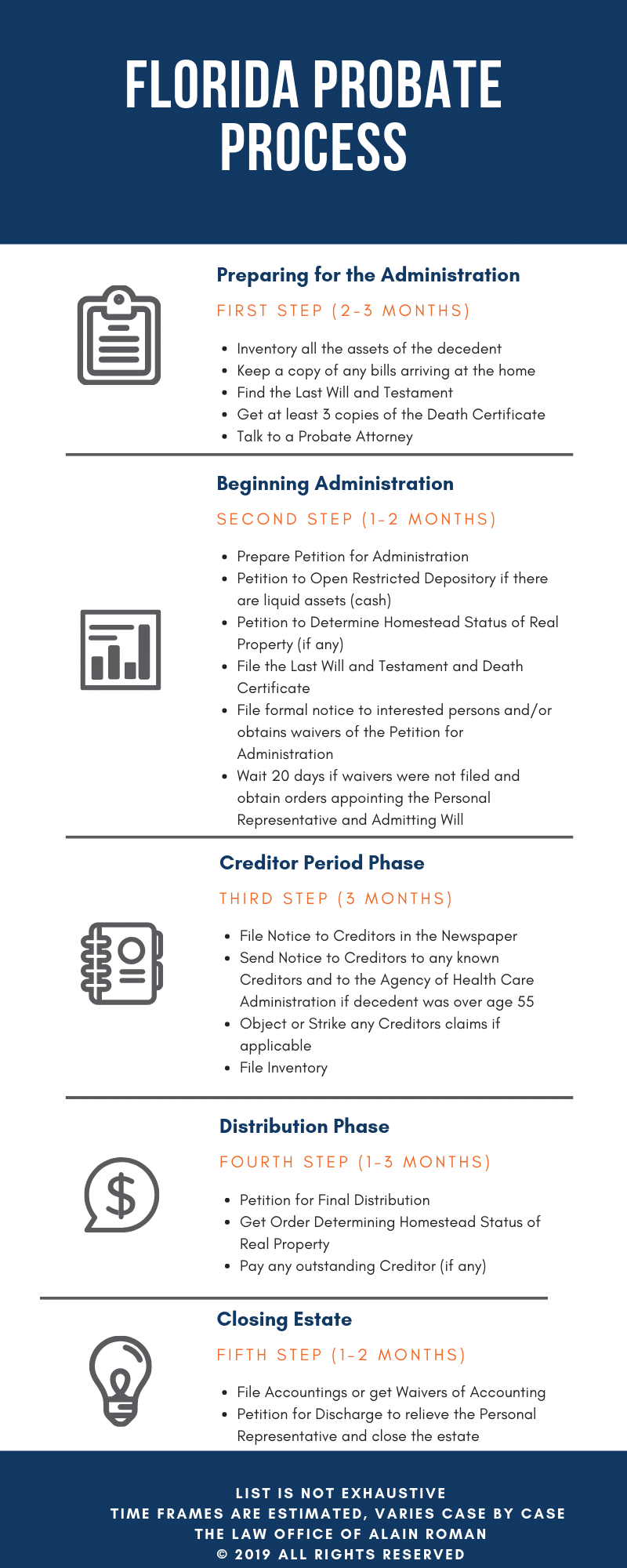Summary Administration is available when your assets are less than $75,000 or your death occurred over 2 years ago.
Although summary administration can be administered a lot quicker than formal administration, probate attorneys do not like to do summary administration in a lot of instances, specially if the decedent has been dead for less than two years.
The reason for this is that after two years the claims of any creditors of the decedent are barred. In summary administration, if the person has less than $75,000 in assets but has been dead for less than 2 years, it is recommended for the probate attorney to also do a notice of creditors, which at this point the time frame becomes more of a formal administration without the added notice requirements.
As a caveat, if you will be selling the real estate of the decedent through the probate process, at least in Miami-Dade County. you will need to do it through the formal administration process. Having a probate attorney that is familiar with the local probate rules is important, regardless where the probate attorney is located in the State of Florida.
In summary administration, no personal representative is appointed. The petitioner, most likely a surviving spouse or a family member, will file a Petition for Summary Administration and provide the Probate court with all the other required documents, like the Last Will and Testament, a Death Certificate, and any other document pertinent to the administration.
Once the probate judge reviews the documents, and he or she is satisfied that all the requirements are met, and that the estate has no creditors, and/or the assets of the estate are exempt, then the probate judge at that point will sign an order approving of the administration and the transfers of assets.
This process can take anywhere between 1-3 months depending on the complexity, number of assets, beneficiaries, and the county where the estate is being probated.

